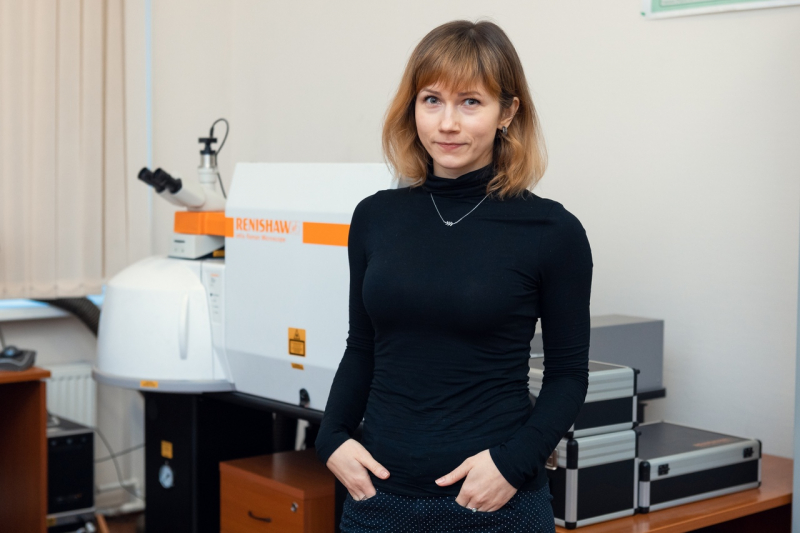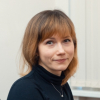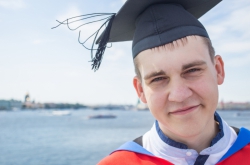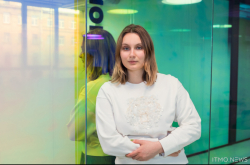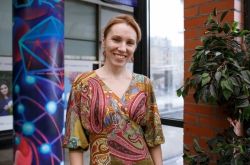Road to big science
Please tell us about your major and why you chose it.
I graduated from school with a medal, got good Unified State Exams grades, which meant that I had full freedom of choice over my university and specialization. I opted for ITMO’s Department of Quantum Electronics and Biomedical Optics, which doesn’t exist now. But at the time I was very interested in studying how lasers are applied in biology and medicine.
When you were applying to university, did you already have the career of a scientist in mind?
No. I think that few people give serious consideration to their future when they’re 17. You just apply somewhere and that’s it. I didn’t plan to become a scientist, it was just important for me that my future job was interesting. In the end, it was research activities that suited this criterion for me.
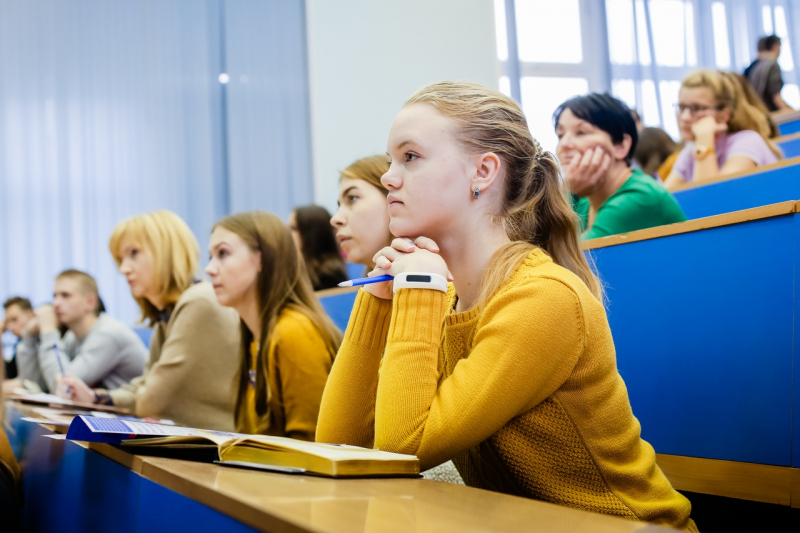
How did you start your career as a researcher?
At the university, we were invited to take part in research from our second year and I really liked that. When I was a fourth-year student, I asked my research supervisor V. Khramov about what else I could try my hand at and what other research projects I could participate in. He recommended that I talked to Prof. A. Baranov, who worked with Prof. Fedorov at the Center of Information Optical Technologies. Back then, the Center was looking for young researchers; we were just freshers and didn’t know much but they accepted us nevertheless. It was a very interesting experience for me: new equipment, important research projects and lots of plans for the future. I decided to continue my career at that laboratory, and I’ve been working there ever since.
So you studied and worked with the same people?
Yes. Especially for us, a Master’s program was created, with several other people being taken in. As a result, what we got was super-exclusive education for only five students. We met each professor every day at work. We had a really good rapport: we weren’t just students and professors but colleagues, too.
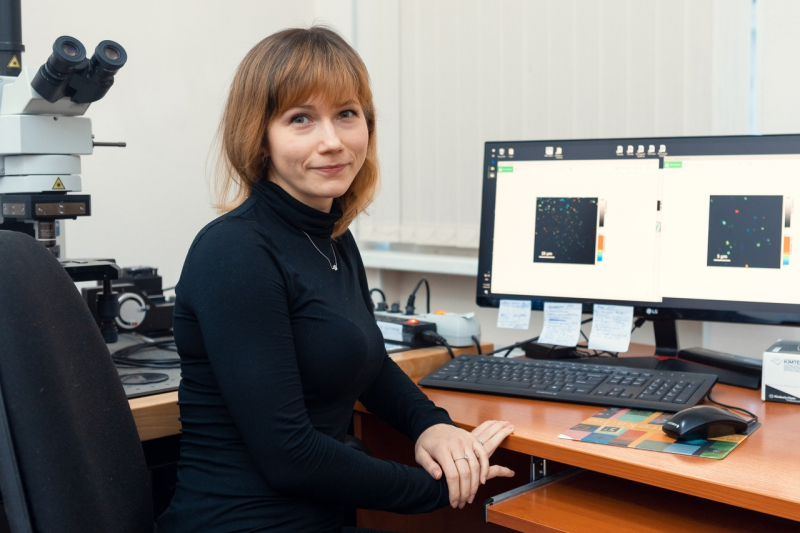
Working in Russia and abroad
And when did you yourself begin teaching?
I went out of the working process for some time because of having a child, and the department offered me to start teaching the course “Introduction to Solid State Physics” for Bachelor’s students of a then-recently opened track. For almost two years, I worked in the flexible mode, with the lion’s share of my time being spent not on science but on teaching.
Now you’re also teaching abroad. How difficult it is to do this in English?
Initially, I was very scared. But, to tell the truth, I was initially scared of teaching at ITMO, too. I think that experiencing fear is normal when we’re venturing into a new activity. There’s always so much responsibility involved. It was easier for me in Hong Kong because of the experience I gained at ITMO. And the key task for me there was to create a friendly atmosphere, I’d even thought about jokes in English in advance, to attract students to the subject.
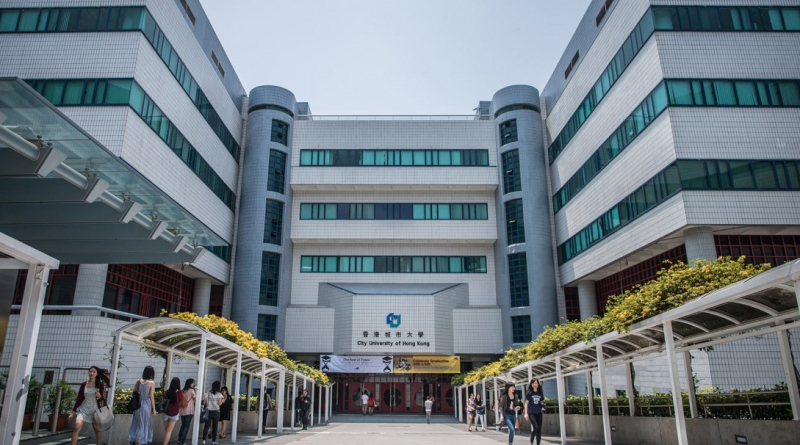
Please tell us how you became an invited lecturer at the University of Hong Kong.
Last year, professor Andrey Rogach from CityU who is megagrant project head at ITMO’s Center of Optical Information Technologies, offered me to go to Hong Kong as a visiting lecturer. I accepted this offer, and now will be teaching students in Hong Kong and doing research work at CityU’s Centre for Functional Photonics (CFP) until summer 2020.
In what way is CityU different from ITMO University?
At CityU, there is a very good support system for lecturers. On the one hand, they require their lecturers to do much more than we are asked to do at ITMO, but on the other, this helps to ensure appropriate students’ assessment procedures. For example, my course consists of 13 lectures and 13 practical assignments. Each lecture is followed by a test held by my assistants. For each test, I prepare a list of correct answers in advance and write the number of points students will get for each particular task. This grading system is then checked by other professors so that students don’t have any questions regarding the objectiveness of my decision. It’s the same with exams. If a student doesn’t agree with their grade, they can easily submit an appeal and I will have to send them a detailed explanation of why it is this grade that they got.
Does it mean that the relationship between students and professors is completely different there? Do students respect their lecturers?
Yes, they do. But thanks to the fact that their educational trajectory is much more flexible, they know from the beginning of the course what knowledge they are going to get and are thus more demanding towards their lecturers. It’s more of a business relationship that students and lecturers have there: they are more like partners.
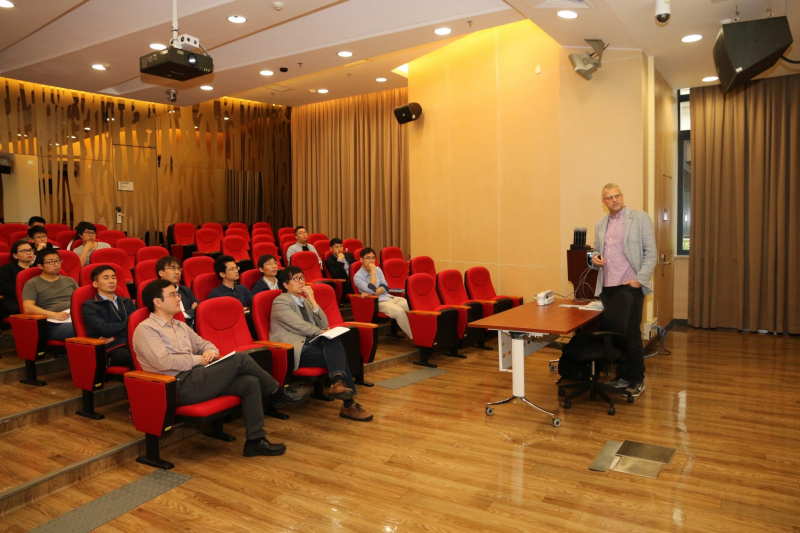
Do you still have time for research when working in Hong Kong?
Yes. I am currently working at Prof. Rogach’s chemical laboratory, where we’re involved in the synthesis of various nanoparticles.
Elena, could you please tell us a bit more about your research interests?
In general, it’s nanotechnologies, and particularly semiconductor quantum dots, nanocrystals, and especially perovskites and carbon dots. I finished my research in semiconductor quantum dots about a year ago and right now I’m mostly focusing on perovskites and carbon dots. Perovskites are a very promising field of research. We specialize in environmentally friendly lead-free materials, however, there are many problems associated with them. They are very unstable in the air, they need to be processed under certain conditions in glove boxes with an inert atmosphere. But on the other hand, they potentially have the same unique optical properties as lead-based perovskites, which we also specialize in at ITMO. The purpose of our work is to make safe lasers based on lead-free perovskites, which then can be used to study processes in cells.
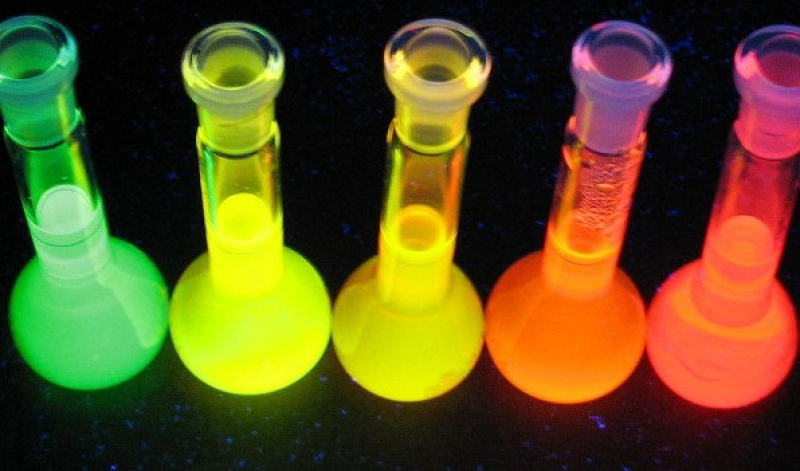
You’ve spent over ten years at ITMO if we count your studies and work together. Have you ever wanted to change the environment?
The thing is that our research topics change every three years, because we work as part of scientific projects. Because of this, for a scientist, it doesn’t really matter where they are: I could have worked on the same tasks at other universities, as well. What’s more, we travel the world to participate in conferences and internships, I’m always communicating with my colleagues from other universities, so it’s never boring. Of course, I’d be interested in trying my hand at other places, for example now I’m working in Hong Kong and on the one side, everything is the same, but on the other, it’s completely different. And, in spite of the universality of science, each laboratory has its own tradition, so perhaps I’d like to collaborate with other universities whilst simultaneously maintaining my ties with research groups at ITMO.
What are your plans for the future?
In terms of research, we already have some groundwork on semiconductor-based nanoplates. This is interesting because they are very thin and at the same time have good optical properties. Thanks to all this, it’s possible to use them to create small multilayer structures. Another promising field is carbon dots. They are simple enough to synthesize, so scientists are trying to find an optimal application for them as a luminescent material, which would reduce the cost of optoelectronic devices developed on their basis.
How to become a scientist
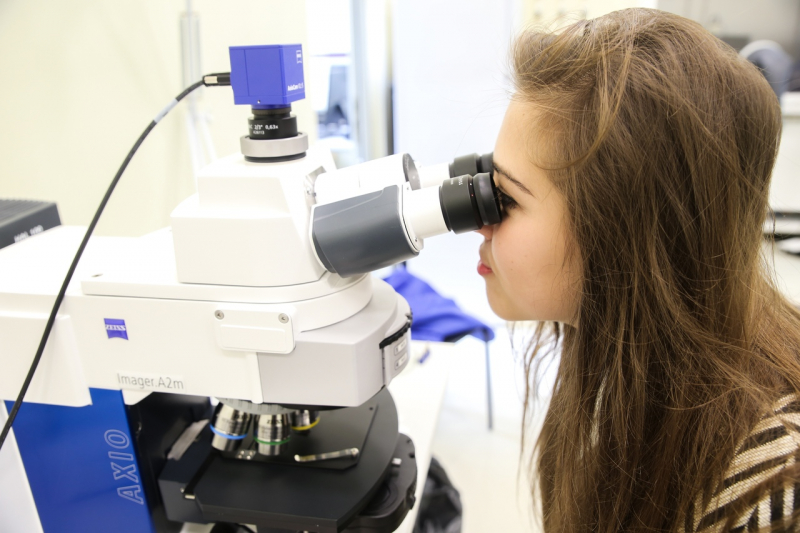
Which qualities do you think are necessary to become a scientist?
A modern scientist has to possess an entire spectrum of professional and personal qualities. They have to be assiduous, be able to process information in a correct way, work with books and articles. Conducting experiments requires you to be consistent, organized and open to any results. Of course, you also have to be able to describe the results of your work, show them in the best light possible, prepare articles, understand how publishing works and what journal your research would suit. You have to be communicative to establish useful contacts at conferences and forums. Another crucial aspect is to be able to and enjoy teaching as it is an important element of this career. Looking further ahead, it’s also important to have management skills to lead a research group and be able to deal with the necessary project paperwork.
Could you provide today’s students with some advice on what they should pay special attention to during their studies?
You have to learn to work with information. We exist amidst an enormous amount of information noise and trying to extract meaningful things in these conditions is difficult, which is why we need to develop this skill. You also have to listen to yourself: do you like what you’re doing professionally? This is a definitive question, because our internal motivation does miracles. It’s no coincidence that scientists often don’t sleep at night writing projects, articles, reports – they are that much excited about their work, and this is something to aspire to. If something makes your heart beat faster, develop in that direction.
